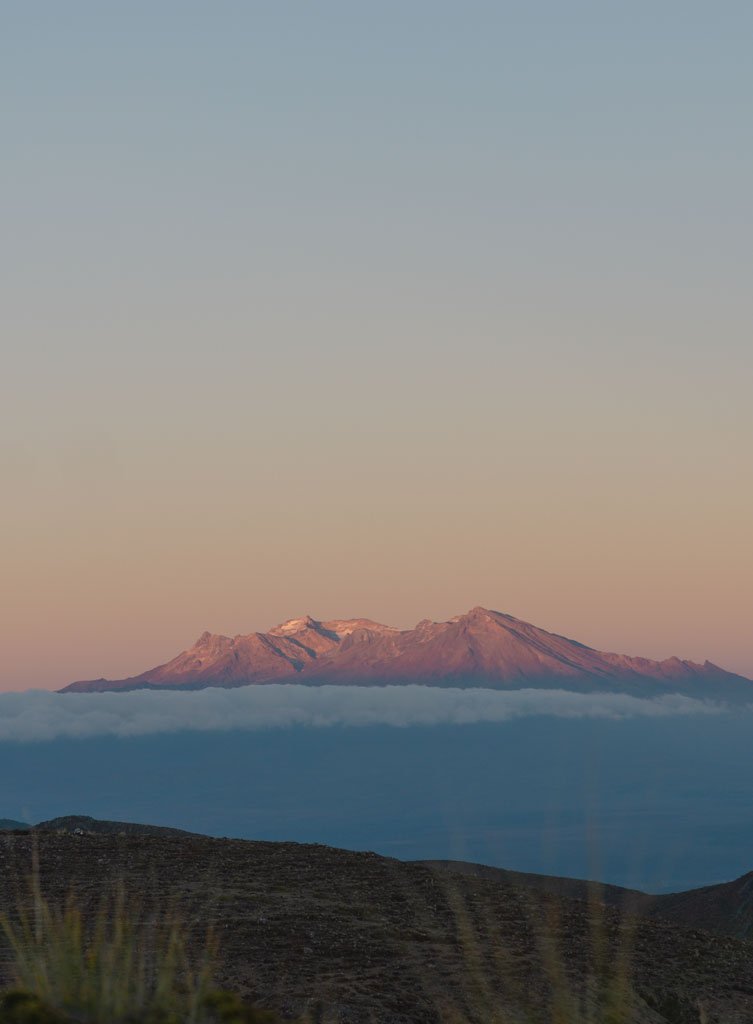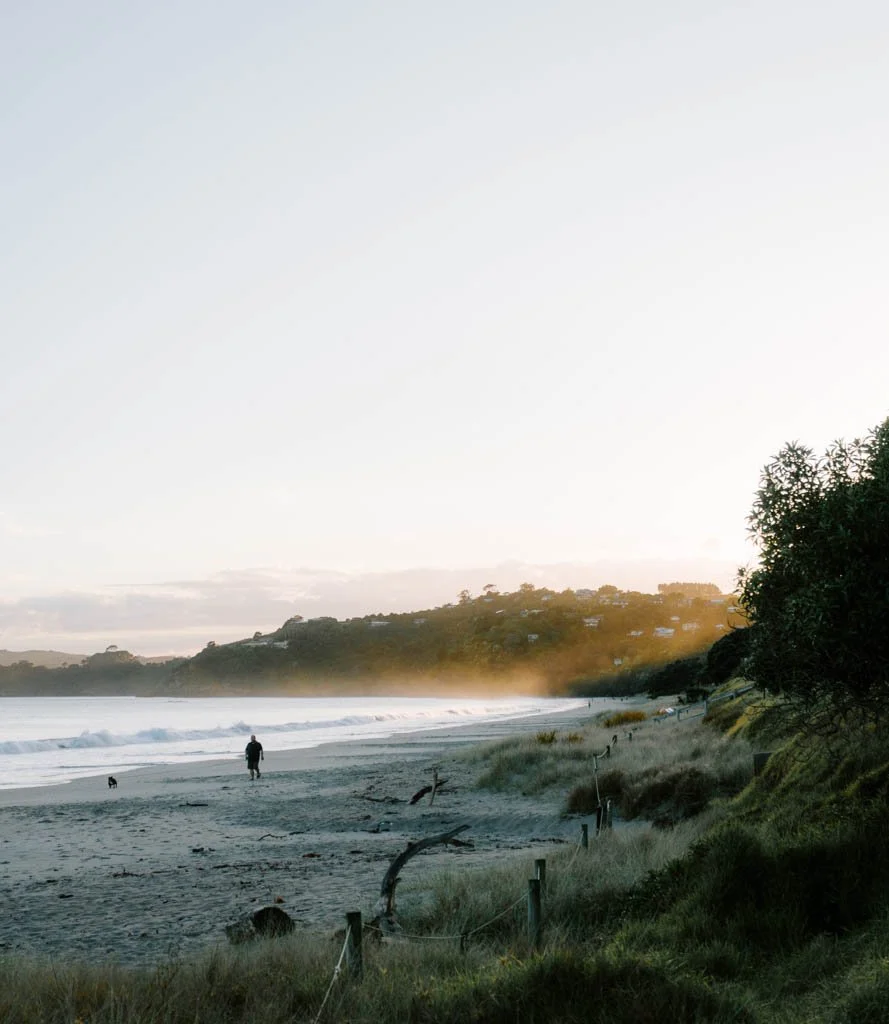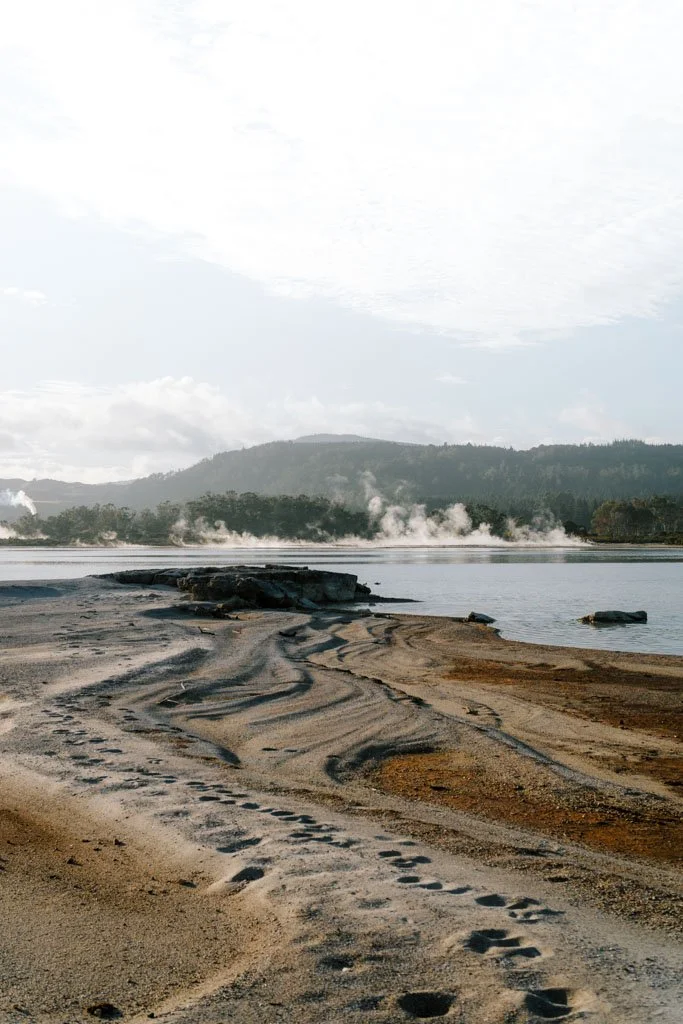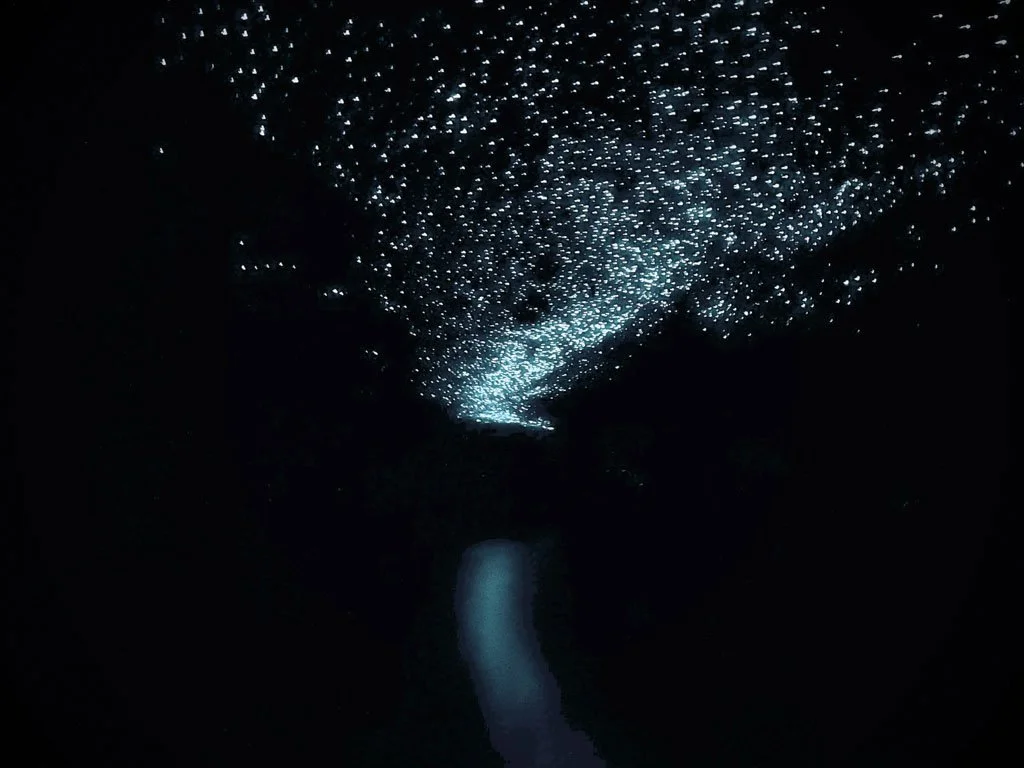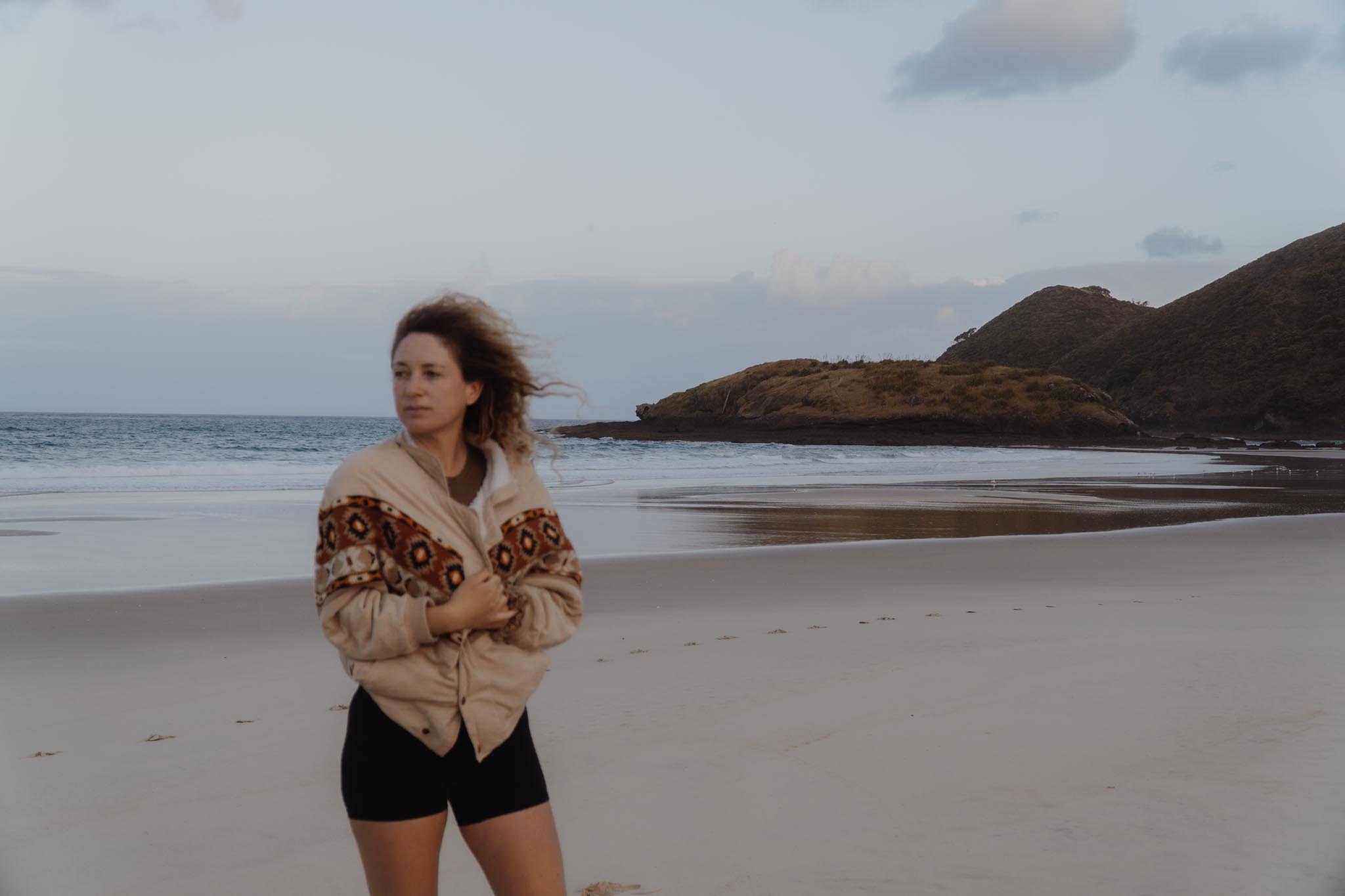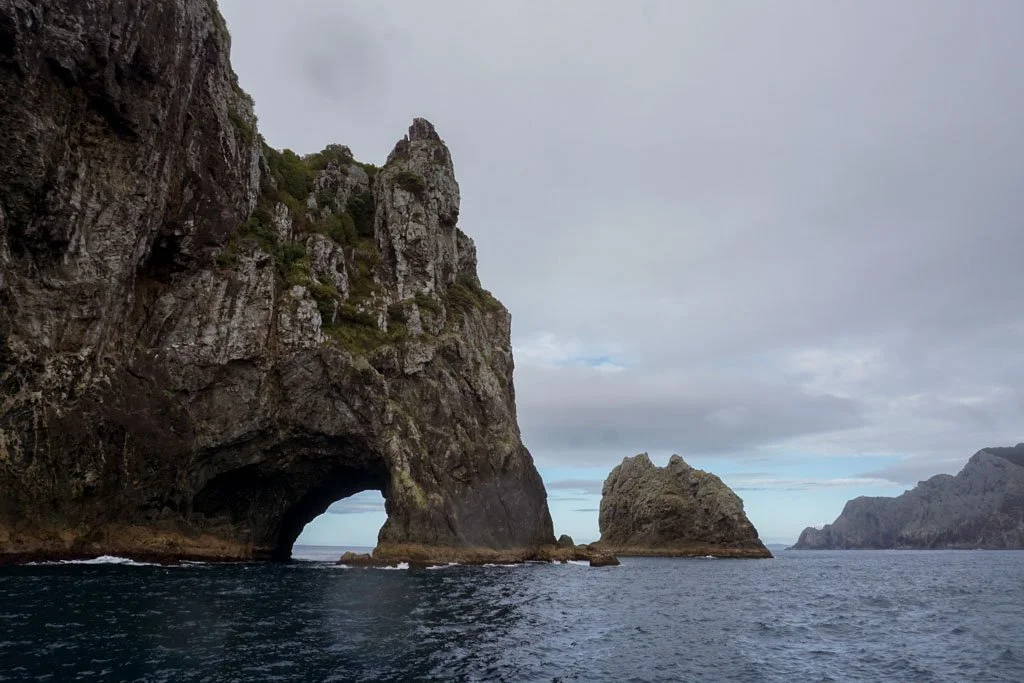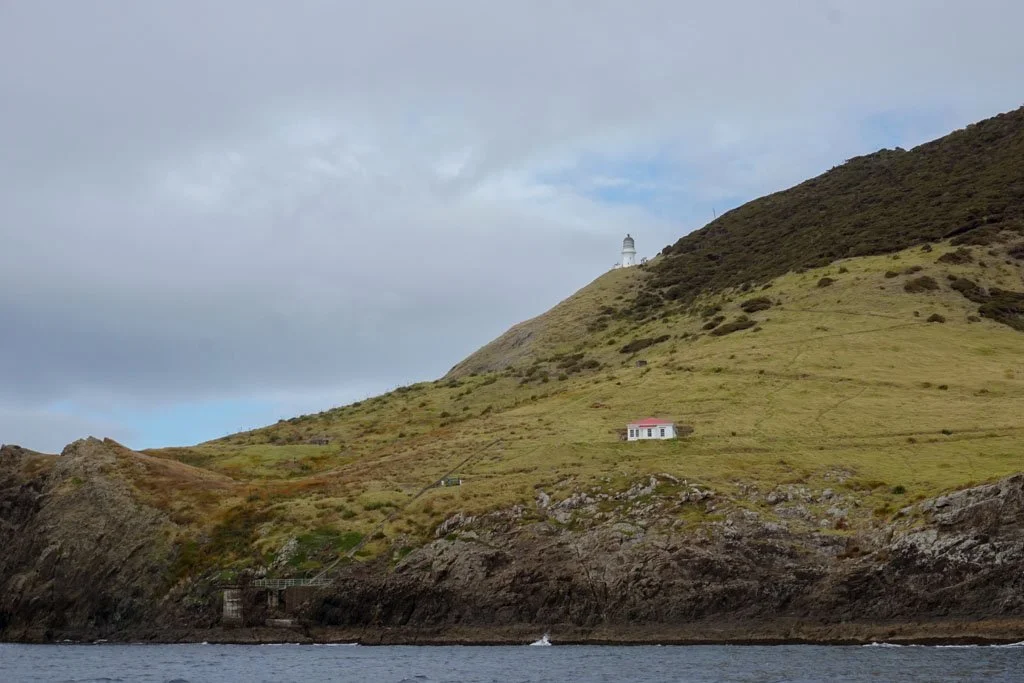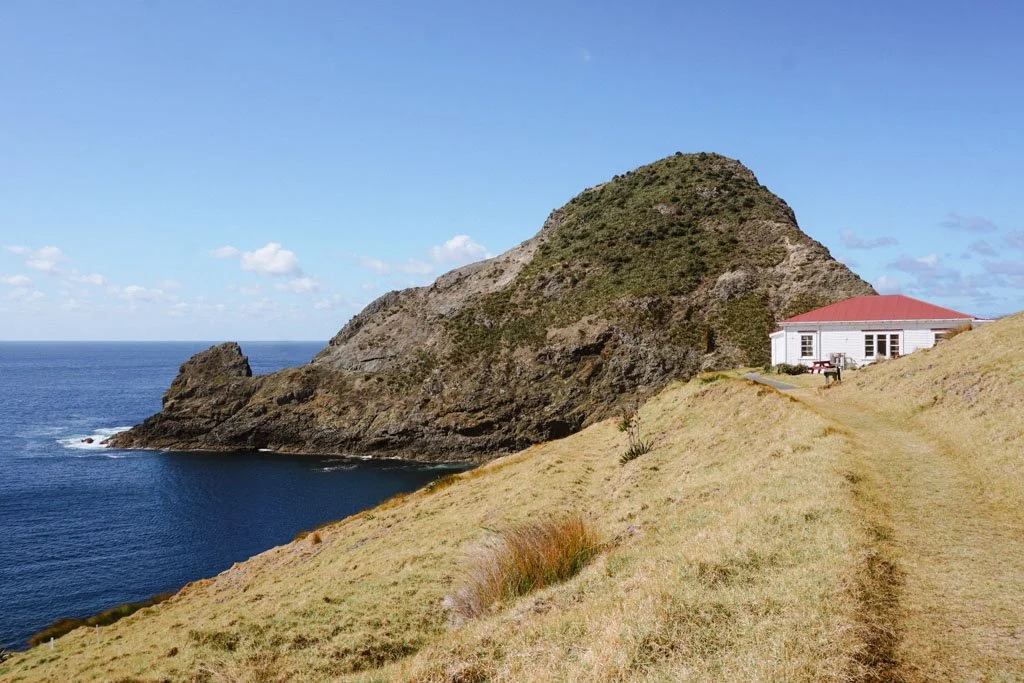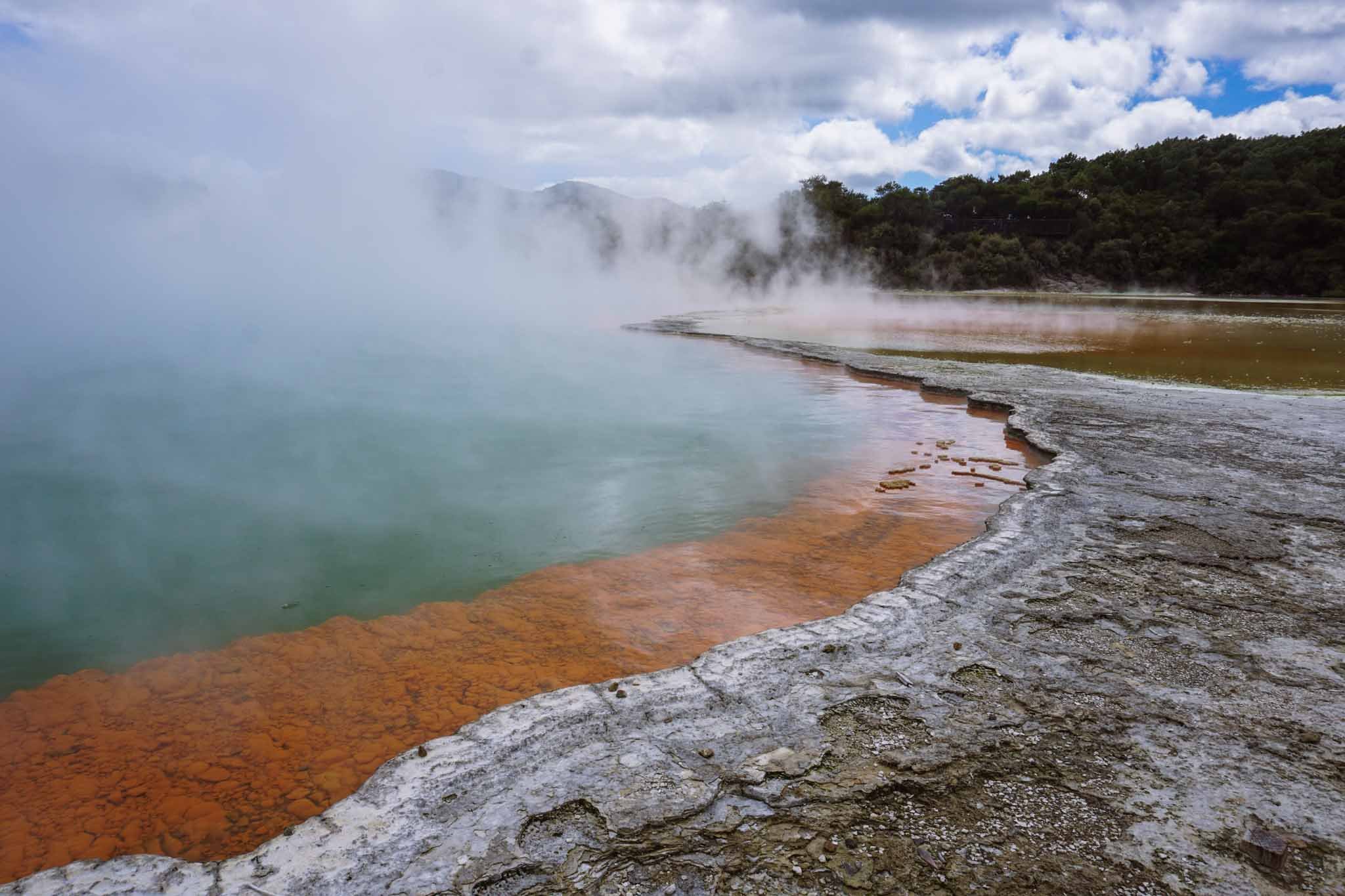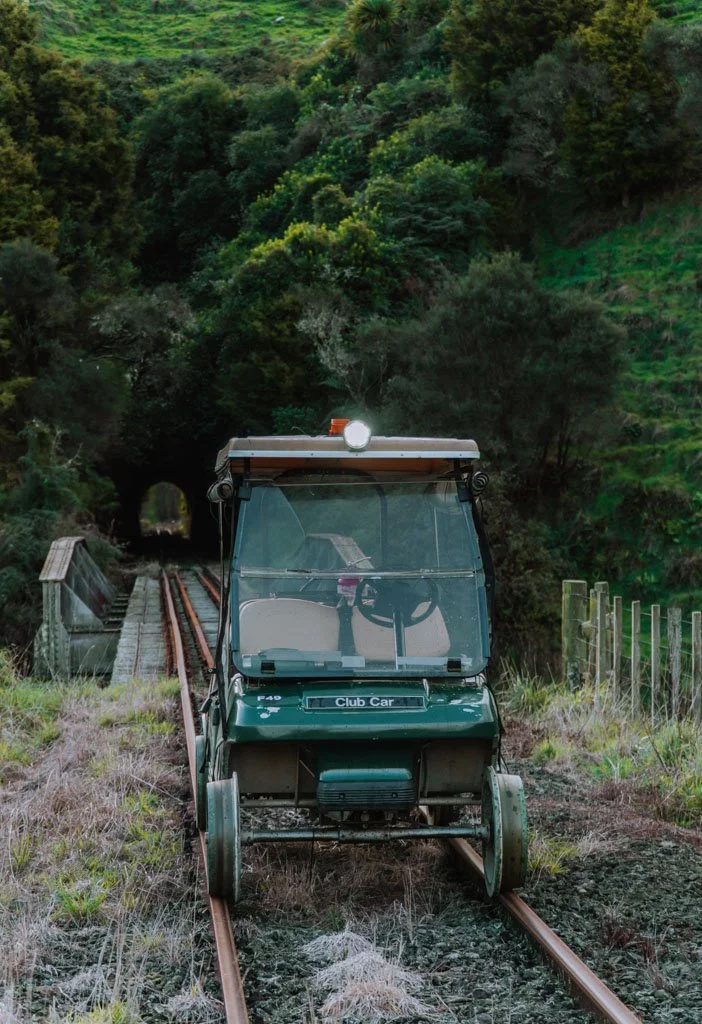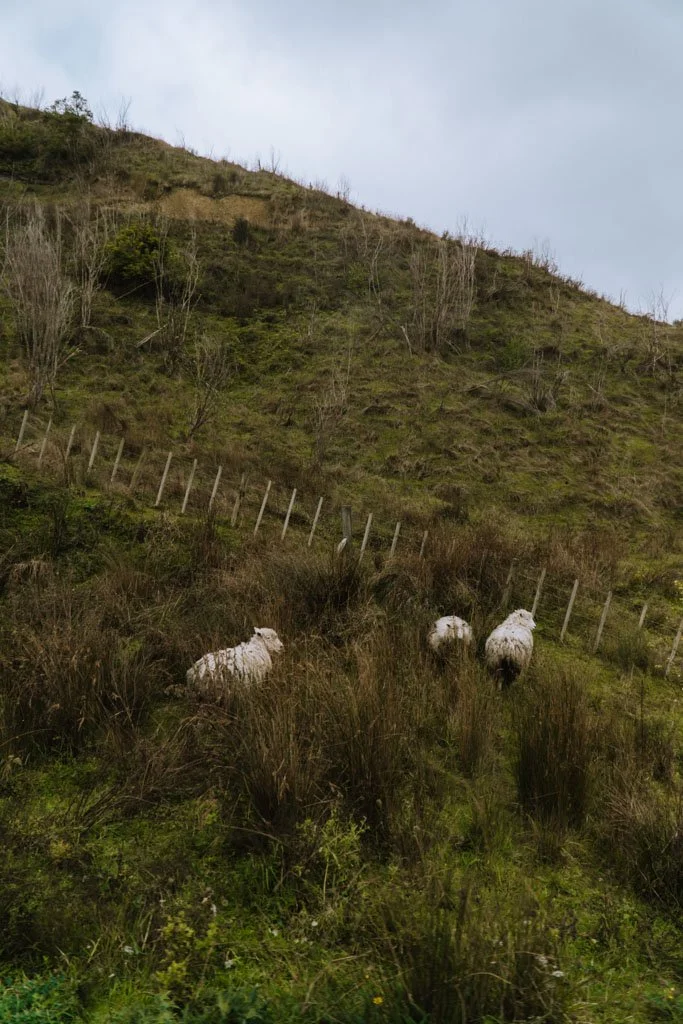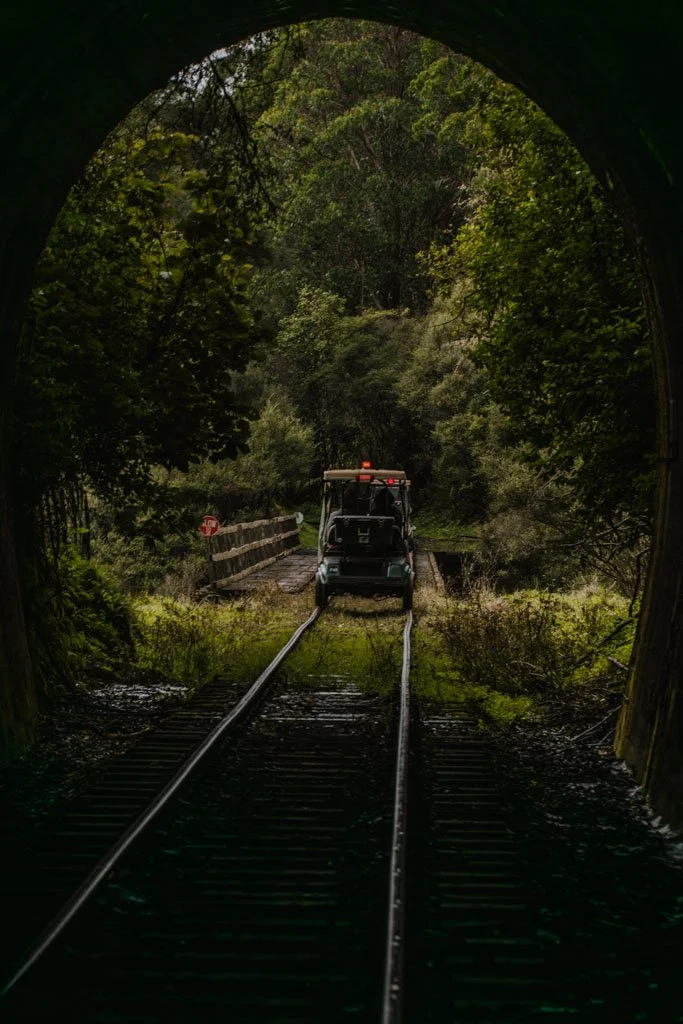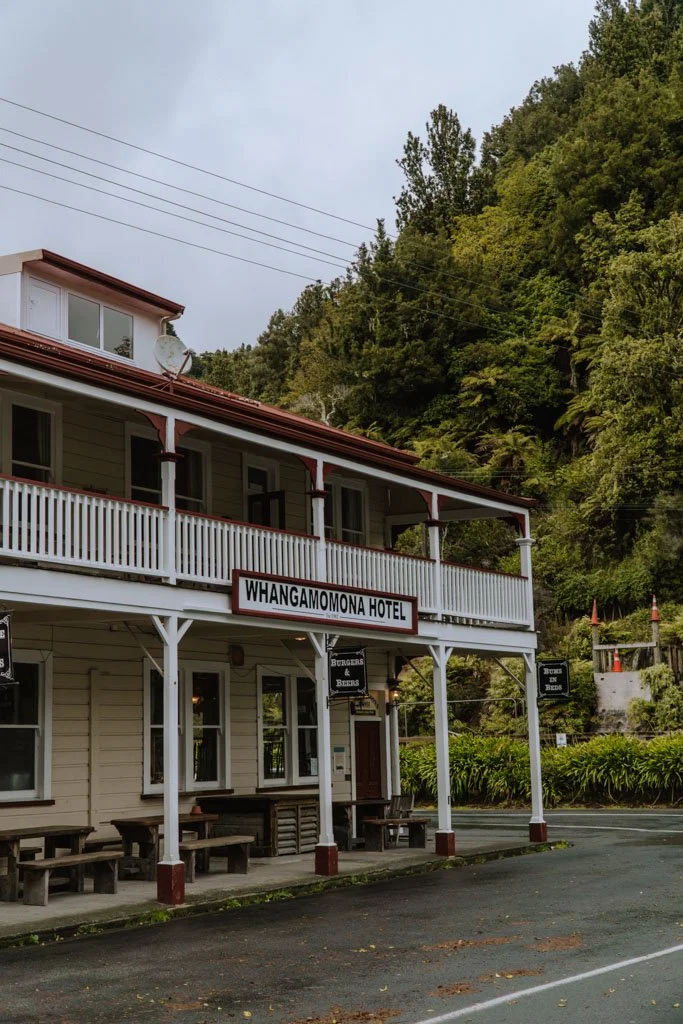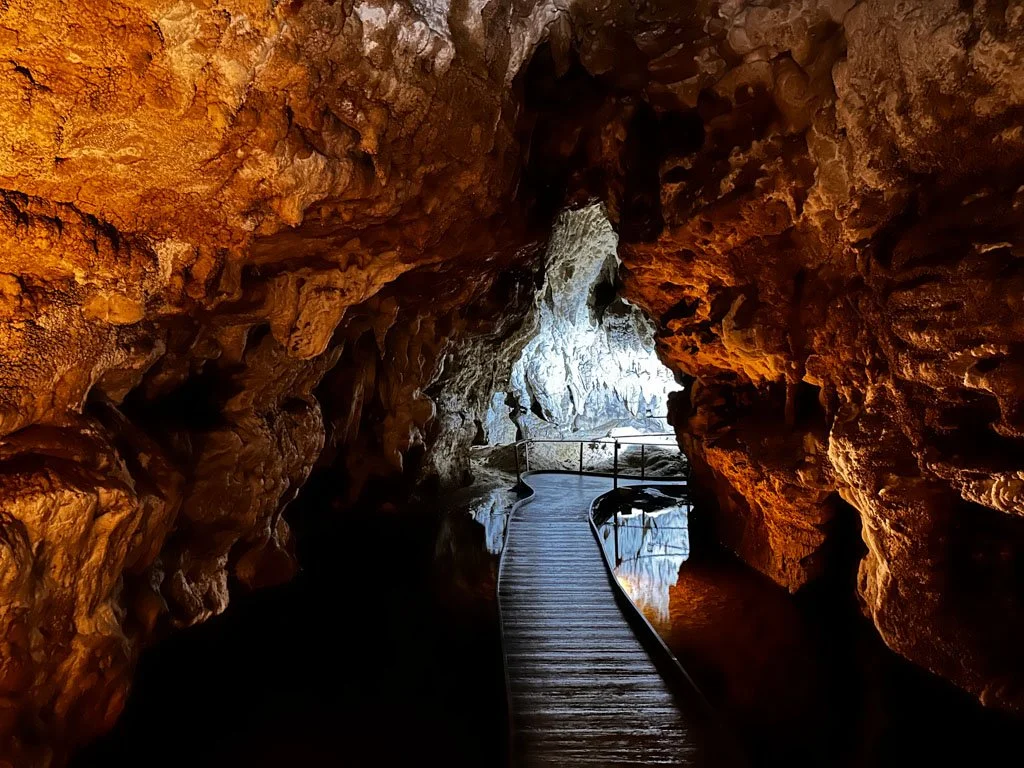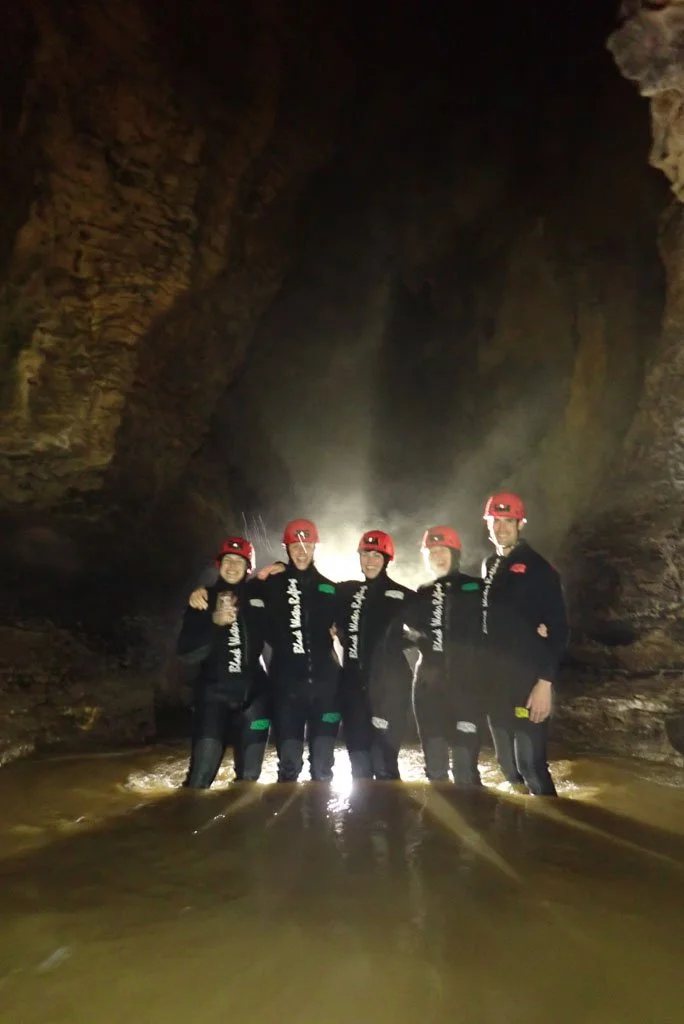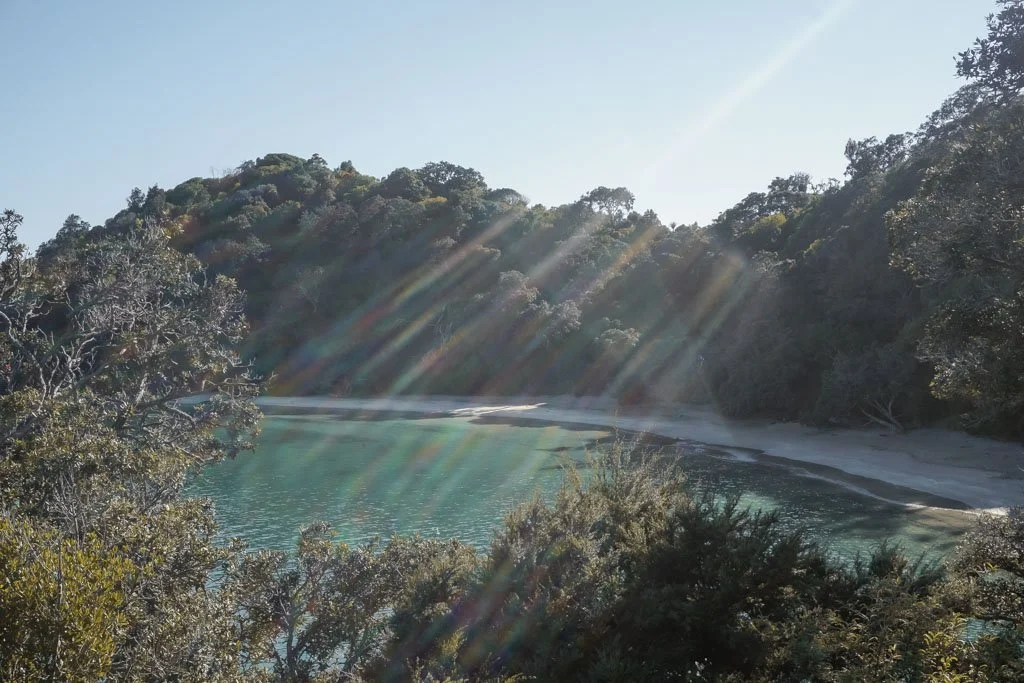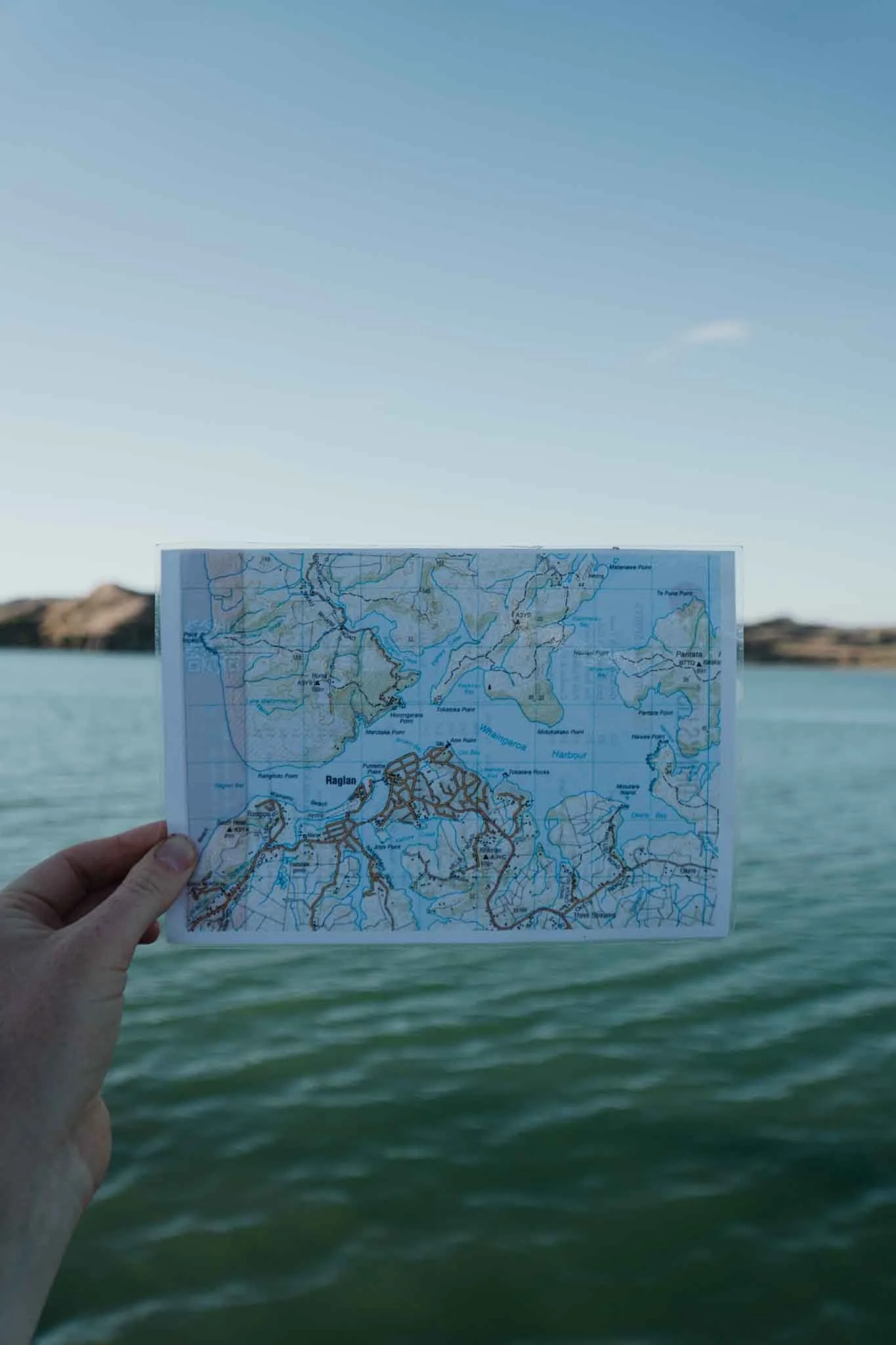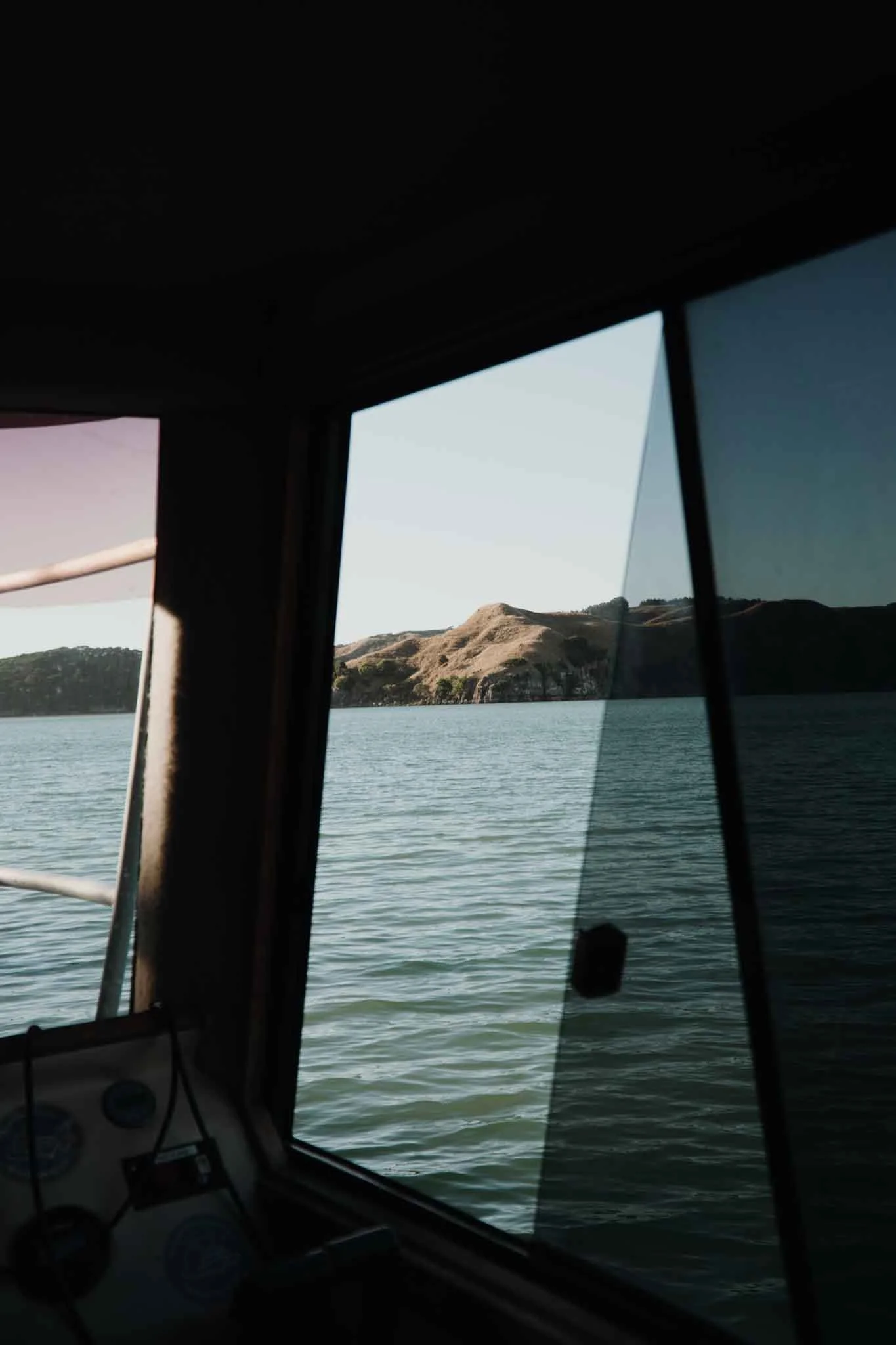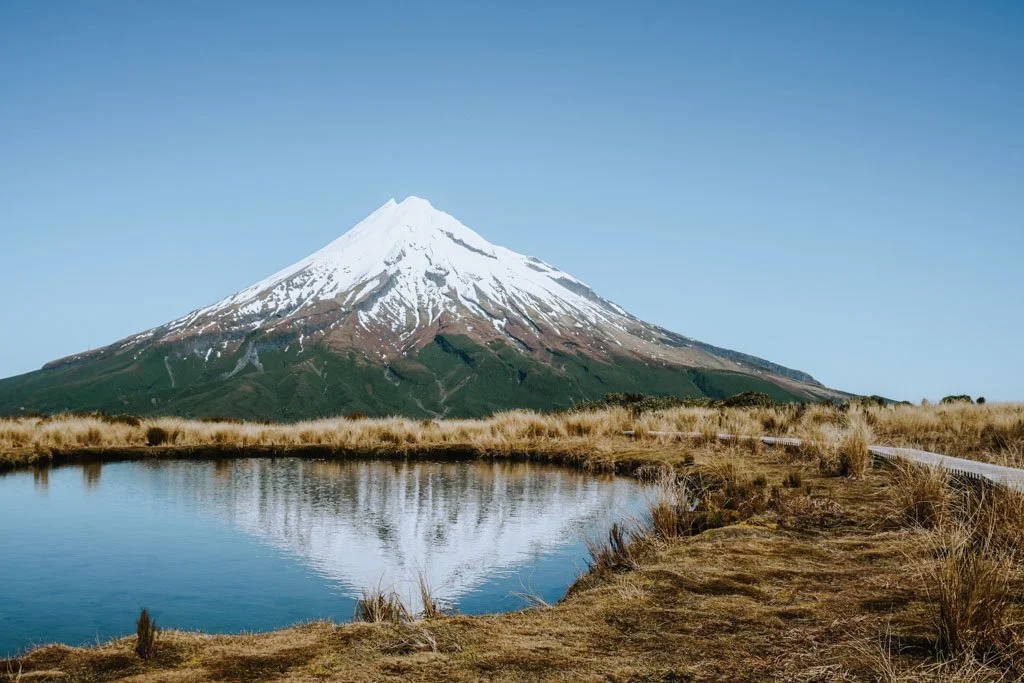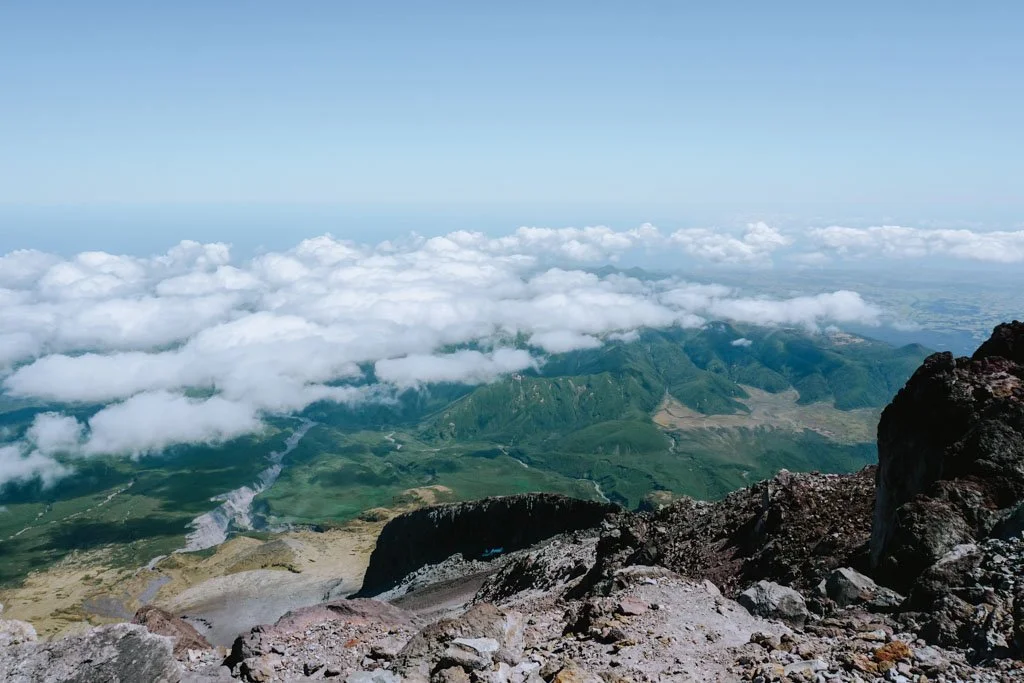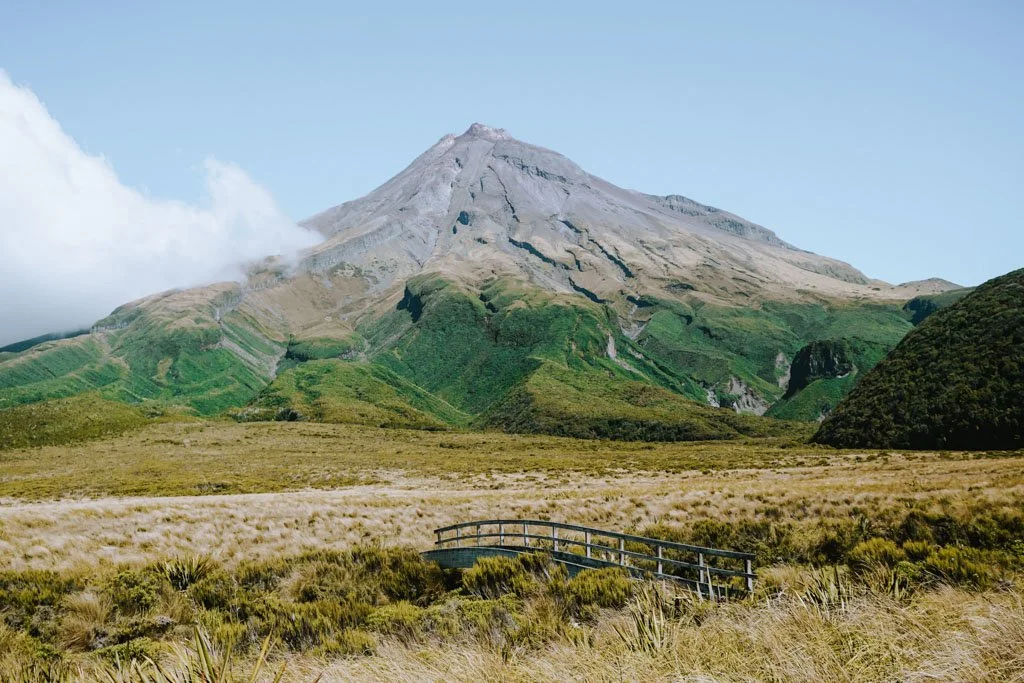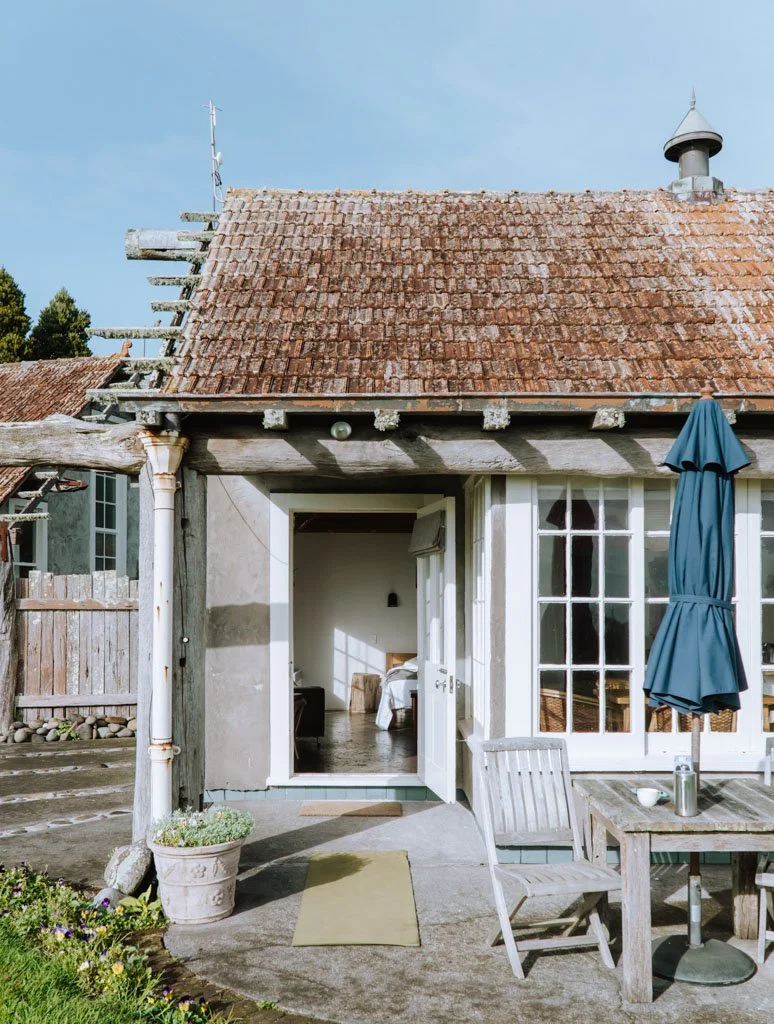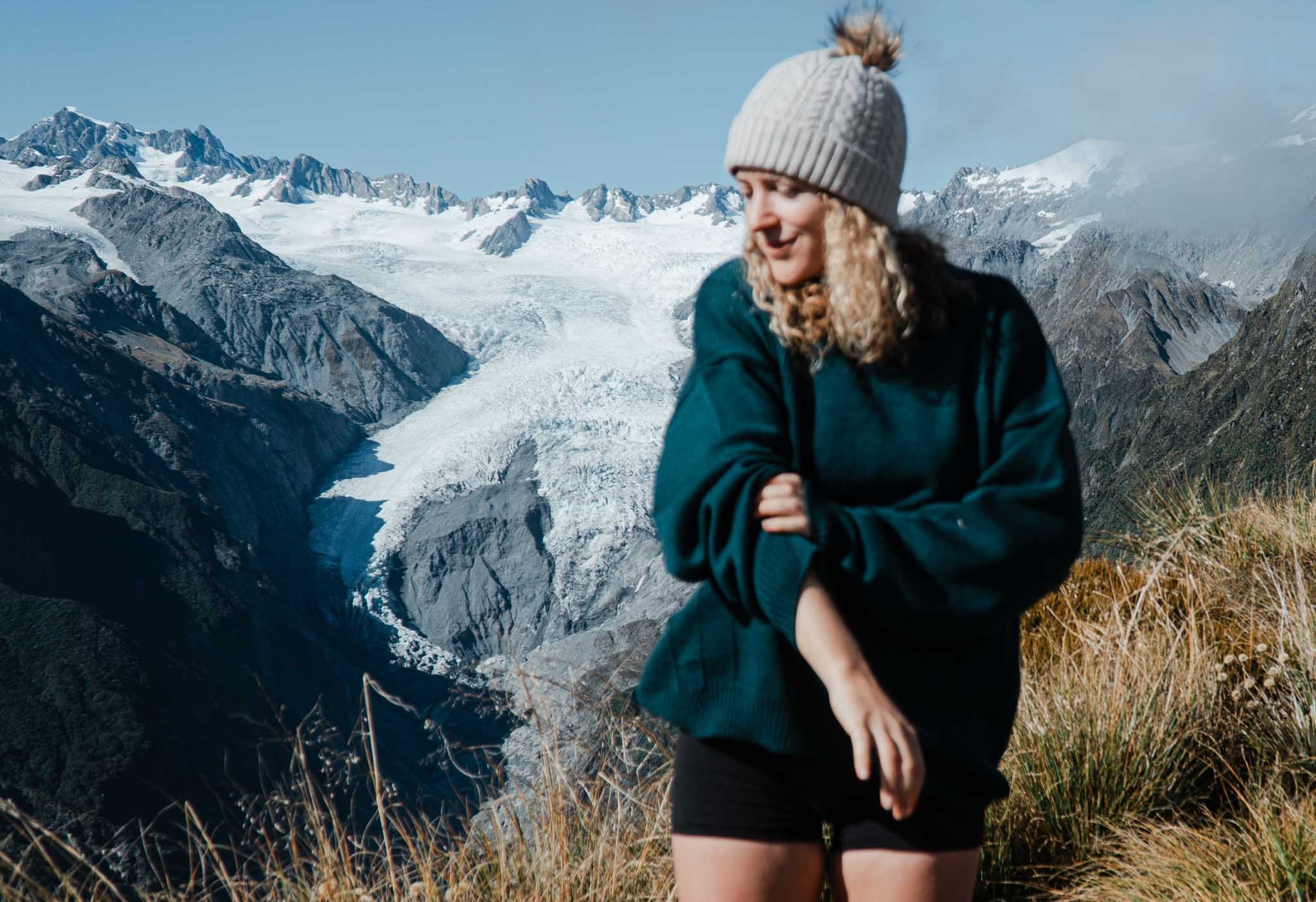Unforgettable things to do in the North Island, New Zealand
Discover all the must-do things in the North Island/Te ika-a-Māui
Tongariro National Park is stunning — on par with any parks in the South Island
Disclosure: This post contains affiliate links, which means I may make a small commission if you purchase something via those links, at no extra cost to you. Thanks for your support.
It’s common enough advice; skip the North Island of New Zealand and head straight for the South.
Why stick around in the North when all the mountains, glaciers, and fjords are in the South Island?
It’s not bad advice, if you’re in a hurry.
But if you have the luxury of time, or a sense of adventure, or even just a smidgen of curiosity — I can tell you that the North Island has just as much to offer as the south.
Sunrise at the beach just down the road from where I grew up — the east coast of the North Island has beautiful white-sand beaches and glorious sunrises (as well as lovely gentle surf)
I was born and raised in the Coromandel Peninsula, and I still get awe-struck by the beauty of the beaches near where I live.
When the sun shines on the blue water and white sand beaches of the east coast, the North Island feels like one of the most beautiful places in the world.
Outside of the beaches, the most famous things to do in the North Island are Rotorua’s geothermal wonders, a Hobbiton tour, swanning around Waiheke Island’s wineries, and seeing glowworms in Waitomo caves.
Waiheke Island
You could visit these places with just a handful of days in the North Island.
If you have longer, and want to get off the beaten track, set off on a coastal road trip around the Coromandel, the East Cape, the Far North, or Taranaki.
In these regions, you’ll find campgrounds right by the waterfront, narrow and winding roads overhung with gnarled pohutawakwa trees, and tiny towns where you might see a horse tied up outside the local petrol station.
Roads that lead to the sea — a view from the far north
If you’re planning a trip around the North Island of New Zealand, the list below includes places and attractions I recommend. This is a selection of my favourite destinations in the North Island, including must-sees and unique places to visit; I’ve tried to include a mix of hidden gems and more popular spots.
This isn’t an exhaustive list of North Island attractions, but a more curated look at what someone who loves food, culture, and the outdoors might enjoy. Places that make the North Island so special.
Waiheke Island
Wine, beaches, and excellent restaurants on an island a short ferry ride from Auckland
Waiheke Island — called just “Waiheke” by locals — is just a 40-minute ferry ride from Auckland.
Auckland is often the entry and departure point for international visitors to New Zealand, but the city itself holds less appeal than the vineyards, beaches, walking trails, and world-class restaurants of Waiheke Island.
ACTIVITY SPOTLIGHT
See the ‘Far End’ of Waiheke with Kiwi Connect
I highly recommend Kiwi Connect as tour company on Waiheke — they are Waiheke locals and really care about giving small groups the best experience. Their ‘Far End’ tour takes you to Man O’War and other out of the way vineyards, for a more exclusive look at Waiheke.
That makes Waiheke an ideal day trip from Auckland, either after first arriving in New Zealand, or before you get on your international flight out of the country.
If you’re aiming to explore the vineyards, the easiest way to get around is to book a wine tour. I recommend going with Kiwi Connect, a small local company, because they like to strike a balance between seeing wineries and scenic places.
Rotorua
For thermal springs, colourful geothermal parks, and Maori culture.
Simmering steam rising from the lakefront at Rotorua
The heart of the North Island is where you’ll find all kinds of volcanic activity — thermal springs and mud pools in Rotorua, steaming vents on the volcanoes in Tongariro, rivers that run hot in Taupo.
Rotorua is an excellent base for exploring geothermal activity; the town itself has hot mud pools bubbling in its parks and along the lakefront.
ACTIVITY HIGHLIGHT
Orakei Korako
Halfway between Rotorua and Taupo, Orakei Korako is a quieter alternative to the more popular geothermal parks closer to Rotorua. I loved the vibrant colours of this place.
The geothermal parks in the area are where to go if you want to see colourful silica terraces, bright pools of acid, and geysers shooting out of the earth.
Of the geothermal parks, my favourites are Waimangu Volcanic Valley and the peaceful Orakei Korako, a peaceful and quiet location out of reach of the tour buses which deposit crowds at more popular spots closer to Rotorua town.
Waitomo caves
The Waitomo area is riddled with cave systems, which are famous for being home to glowworms found uniquely in New Zealand.
There are different ways to explore the caves — if you just want to see the glowworms, you can go on a short walk and boat tour of the caves.
The main Waitomo Caves are the main attraction but not necessarily the best. There are less visited caves where you can see brighter glowworm lights; I visited with Spellbound and really enjoyed the experience, and I would like to visit the Down to Earth Eco Cave tour soon.
Or, for something with a little more of an adventure element, check out the black water rafting trips in Waitomo.
I did the Black Abyss Tour, which includes an abseil into the caves (scary), a zipline underground (fun), and floating along in inner tubes under the glowworms, in the pitch dark of the caves (incredible).
See oceans collide at Cape Reinga/Te Rerenga Wairua, in the Far North
An early morning in Spirits Bay
The Far North of the North Island is a narrow finger of land that is home to some of the most incredible beaches in New Zealand, not to mention places of huge cultural significance.
One of my favourite road trips in all of New Zealand is the drive up to Cape Reinga/Te Rerenga Wairua, the northernmost point of the country.
Horses on the beach at dawn, Spirits Bay
It’s an epic trip for several reasons.
The cape holds spiritual significance for Maori people, who believe that is the point where souls depart for the afterlife once they have passed; the windswept, desolate piece of coastline feels utterly believable as a conduit to the spirit world.
A coast track leads down to this beach and along the shore
It’s a rugged, beautiful area where you can see the Tasman Sea and the Pacific Ocean collide. There are coastal walks near Cape Reinga, and giant sand dunes by 90 Mile Beach. Rarawa Beach has bright white silica sand that squeaks underfoot.
Plenty of spots to get sandy feet.
If you’re camping, the campgrounds in the very far north are hard to beat. Kapowairua/Spirits Bay Campground is a spacious and beautiful campground; wake up early enough and you might be able to greet the wild horses roaming the beach at dawn.
Another one of my favourite places (in pretty much the whole island) is the Maitai Bay campsite on the Karikari Peninsula. Maitai Bay might be the best beach in the North Island, it’s so stunning.
FEATURED STAY
Endless Summer Lodge
My favourite place to stay in the far north was Endless Summer lodge, a stunning lodge in a restored kauri villa. It’s right opposite Ahipara Beach, and it’s the perfect place to embrace coastal New Zealand living.
Explore the Bay of Islands and Paihia
Oke Bay, in the Bay of Islands. The water here was so calm and clear.
The Bay of Islands in Northland is exactly what it sounds like — a paradise of islands.
There are 144 islands scattered throughout the bay, with turquoise waters, secluded beaches there to discover.
It’s also the epicentre of New Zealand history; here you can visit the Waitangi Treaty Grounds, the location of the signing of the Treaty of Waitangi in 1840, the country’s founding document.
The ‘Hole in the Rock’ many of the boat tours visit
Unsurprisingly for a place called Bay of Islands, the area is best explored by boat. But, if you’re like me and don’t have a personal yacht, you can still reach some gorgeous beaches by road (like Oke Bay in the photo above), catch ferries out to a couple of the islands, or go on a boat tour.
Cape Brett hut, seen from a boat
The old lighthouse keeper’s cabin at Cape Brett now makes a good destination for a day walk, or an overnight stay
It’s easy to catch a ferry out to Urupukapuka Island for an epic day walk.
My favourite adventure around there is hiking out to Cape Brett and spending a night in the former lighthouse keeper’s cabin.
You can catch a ferry to a cove not too far from the hut.
If you make the journey north of Auckland, make sure you visit the remote west coast of Northland.
The Waipoua forest is home to the largest remaining kauri tree, Tane Mahuta. The incredible trunk of this surviving tree is fantastic to behold — it’s little wonder Tane Mahuta is considered to be Lord of the Forest by Maori people.
WHERE TO SEE MORE KAURI TREES
Our kauri trees used to stand across the upper half of the North Island, but their mighty trunks and beautiful wood meant they were logged almost to complete eradication. There were few survivors.
Seeing some of the trees that were left behind, and that continue to grow, is very special.
One of the most beautiful stands of mature kauri trees I have ever seen is just north of Tane Mahuta. If you like walking, it’s well worth stopping in at the Waiotemarama Waterfall Walk.
Another great one to do is the Trounson Kauri Park loop, which is only 30 minutes.
FEATURED STAY
Wisteria Way
Wisteria Way is a gorgeous place to stay, minutes from Tane Mahuta. A semi circle of cottages sit around a spectacular cottage garden full of blooms — it’s very idyllic. I loved that it’s owned and run by a local ‘retired’ couple who also have a small cafe and gift shop on the grounds.
Hike in Tongariro National Park
Tongariro National Park is most famous for the one-day Tongariro Crossing, but the whole park is stunning, and in my view one of the most underrated parts of the North Island.
A late evening walk to Tama Lakes
The park is a UNESCO World Heritage Site, famed for its volcanic landscapes, including active craters, emerald lakes, and Mars-like terrains.
The premier experience is the Tongariro Alpine Crossing, a day hike through some of the most striking scenery in the national park.
However, the Crossing is far from the only attraction in Tongariro National Park.
Mount Ruapehu at Sunrise
You can walk the entire Tongariro Northern Circuit, which is one of New Zealand’s Great Walks, walk to the spectacular Taranaki Falls, or hike to the Tama Lakes.
If you plan on walking the Tongariro Crossing, make sure you allow a night in the area before and after. It’s a challenging full day hike and you’ll want to rest and recover afterwards, and not try to push on to your next stop.
FEATURED STAY
Rua Awa Lodge
I stayed in lovely little Rua Awa Lodge one September before visiting the national park (it snowed in the park! So the fireplace in this lodge was bliss). The outdoor bathtub and firepit really make it a special spot to stay.
Ride an abandoned railway line in a golf cart, in New Zealand’s ‘Forgotten World’
One of the most unique things you can do in the North Island is cruise along a disused railway line, in a custom golf buggy.
Abandoned cars line the railway tracks, reminders of the industry that used to thrive there
The railway passes through sheep country, with rugged hills and shy locals
The railway skirts Whanganui National Park, and passes through the ‘Republic’ of Whangamomona, surely one of New Zealand’s most remote country pubs. You can spend a night there, or just get your passport stamped at the bar on the way through — all 40 of the local population love to riff on the status of Whangamomona as an independent state.
Tunnels are a highlight of the trip
The Forgotten World Adventure tour takes you to Whangamomona by road, then sends you back to Taumarunui via the railway. On the way, there are many kilometres of tunnels, epic views of vast sheep country, and several history lessons on the making of the railway.
It’s a long day of sitting in the golf cart, but that does make it ideal for younger or older travellers — it’s an accessible way of seeing some of the most remote corners of the North Island.
In the Waitomo Caves, with friends — on the Black Abyss tour
FEATURED STAY
Abseil Inn
John and Helen are the loveliest hosts, with wicked humour and excellent breakfast spreads.
Explore Whangarei Heads and the Tutukaka Coast
The view from Mt Manaia
Whale Bay is one of my favourite secret swimming spots in New Zealand
Whangarei Heads is one of my favourite parts of the North Island.
A narrow, meandering road winds around the coast between Whangarei and Ocean beach, with views of the glittering harbour and lush forested hills.
Volcanic peaks make for great day walks to panoramic views — Mt Manaia is a 2 hour walk to a stunning lookout over the harbour.
A harder day walk is Te Whara/Bream Head, which follows a ridgeline for views up and down the coast.
Shorter walks lead to Busby Head and Smuggler’s Bay, a gorgeous white sand beach.
The Poor Knights Islands are a cluster of small islands off the coast of Northland. The water here is a rich blue, and under the surface are caves, tunnels and cliffs.
I learned to scuba dive at the Poor Knights, and I can recommend Dive! Tutukaka for either diving or snorkelling trips to the islands.
On the dives I completed by the Poor Knights, I saw an electric eel, giant rays, and huge schools of fish which swirled around us in flickering colours.
Other gorgeous places to visit in Tutukaka:
Whale Bay is a short walk to a secluded bay, absolutely stunning
Matapouri Beach is gorgeous
Soak up the vibes in Raglan, a bohemian surf town
Raglan is a laid-back coastal town two hours south of Auckland.
It’s one of my favourite places in the North Island to hang out for a weekend.
Renowned for its world-class surf breaks, Raglan attracts surfers of all levels seeking the perfect wave. The iconic left-hand point break at Manu Bay is a magnet for goofy-footed surfers.
Beyond surfing, Raglan offers coastal walks, beautiful beaches, and striking viewpoints.
Bridal Veil Falls and Mount Karioi provide excellent hiking opportunities with breathtaking scenery. The artsy town center is filled with galleries, cafes, and boutique stores, adding to its bohemian charm.
ACTIVITY HIGHLIGHT
Road trip around the Coromandel Peninsula
The Coromandel and East Coast are ideal summer destinations, when evenings are long and the perfect place to be is in a campsite by the ocean.
The North Island truly stands out for its incredible beaches. As a general rule of thumb, the east coast has calm, white sand bays, while the west coast is more rugged and wild, with vast black sand beaches.
The Coromandel Peninsula is the best of the east coast; it’s one of the best road trip destinations in the North Island, thanks to its epic beaches.
Visit Cathedral Cove to tick off one of the top day walks in the country, then go and dig your own spa in the sand at Hot Water Beach.
LONELY BAY — A MUCH QUIETER ALTERNATIVE TO CATHEDRAL COVE
You can drive in a leisurely loop around the peninsula, taking it slow on the narrow roads lined with pohutawaka trees.
Some of my favourite stops are Otara Bay (and I’m truly giving away a secret with that one), Opito Bay in the far east of the peninsula with a pit stop at Luke’s Kitchen in Kuaotunu on the way, and the Driving Creek Railway near Coromandel Town.
OPITO BAY
North of Coromandel Town is where things start to get more off the beaten track; or off the sealed road, to be precise. Head to Waikawau Bay to discover the largest DOC campsite in New Zealand, and another sheltered bay good for surfing and swimming.
Just over the hill at the south end of Waikawau Bay is Little Bay, spot that locals have done a great job of keeping secret. There are a few spots in the carpark for self-contained campervans to stay overnight.
If you don’t mind manoeuvring a campervan or motorhome along gravel roads with sheer drop-offs, DOC campsites at Port Jackson and Fletcher Bay will take you properly off the grid. Port Jackson Campsite is set on the very tip of the peninsula, with a vast beach and views of Great Barrier Island.
Neighbouring Fletcher Bay Campground is the starting point for the Coromandel Coastal Track, a highlight of the peninsula that has marvellous views of the craggy coastline, as well as dense bush with the occasional kaka wheeling above the canopy.
FEATURED STAY
Wairua Rainforest River Retreat
An exceptional place to stay, I really can’t recommend it highly enough. Tucked away in the forest, with a forest bath, a hot tub under the stars, and a fire pit, Wairua feels like an exclusive little piece of paradise.
See Mount Taranaki from mirror-like mountain pools
If you’re lucky, the tarn will be calm and still — I was lucky with fine weather, but there was still a ripple of wind
Mount Taranaki towers over New Plymouth and the Taranaki region in the southwestern corner of the North Island.
Mount Egmont National Park is the almost perfectly circular wilderness area that encompasses the peak and the thick goblin forests that cloak its lower slopes.
The view from the top of Mount Taranaki
There are a number of excellent short walks in the national park. The Pouakai Crossing and the summit trek present rewarding challenges with panoramic views of the surrounding landscapes.
Walking the Pouakai Crossing
But one of the best and most accessible walks is the Mangorei Track to the Pouakai Tarns — it’s shorter than walking the full Pouakai Crossing, and as an out-and-back track it’s easier to organise than the one-way crossing.
On a still, clear day, the Pouakai Tarns reflect the impressive peak of Mt Taranaki.
FEATURED STAY
Ahu Ahu Beach Villas
Ahu Ahu Beach Villas is a truly exceptional place overlooking the wild coast.
Eat your way around Wellington, the capital city
Wellington is a must-visit place in the North Island.
Tucked between a rugged coastline and steep hills, Wellington is both naturally beautiful and rich in coffee culture, creative arts, and cuisine.
Wellington is often dubbed the culinary capital of New Zealand. Here you’ll find an abundance of cafes and restaurants, with an emphasis on fresh, local produce and chefs determined to explore modern Pacific cuisine.
To make the most of Wellington, stroll around the waterfront, explore the chaos of Cuba Street, and dine at some of Wellington’s exceptional restaurants.
FEATURED HOTEL
The Intrepid Hotel
An independent, one of a kind hotel, with oodles of character and a vibe that fits the capital city’s cool nature.
Cycle around Martinborough wineries
Martinborough is a picturesque wine village near Wellington.
The town is famous for its boutique wineries and vineyards, many of which are walking or cycling distance from the town centre.
A highlight of Martinborough is exploring the numerous cellar doors, meeting passionate winemakers and savouring a wide array of wines.
The region is famed for producing elegant Pinot Noirs, and some of the vineyards offer decadent lunches to go with your wine.
It’s a small town, and you can walk to a few vineyards if you like. But a more popular way to explore is on a bicycle, which is an idyllic way to spend an afternoon.
DON’T MISS
The most famous lunch spot in Martinborough is Poppy’s, known throughout the island for decadent platters.
Castlepoint
The windswept, rocky coastline at Castle Point
Castle Point has a special kind of magic.
The lonely lighthouse on its tower of rock, the sandy shores around the lagoon, and the jutting lump of Castle Rock make this section of the wild Wairarapa Coastline unique.
Blissfully, there’s not much to do here other than stroll the beach and walk to lookout points.
Fishing boats sit pulled up onto the sandy shore. Occasionally, someone bobs past on a horse. Other than a local shop, which also serves as a coffee place and takeaway joint, there’s not much here other than simple baches hunkering against the hills.
Walk up to Castlepoint Lighthouse, a monolith atop a craggy limestone knoll lashed by waves.
First lit in 1913, it's the tallest lighthouse in the North Island and one of the last two remaining lighthouses in New Zealand with a rotating beam.
A boardwalk scales the fossil studded ridge of the headland to reach the lighthouse, then climbs beyond to an epic lookout.
For an alternative vantage point, follow the Deliverance Cove Walking track from the carpark. It curves along a pine-covered ridge above the beach, eventually leading to the mighty Castle Rock.
Scramble up through golden grass and until you reach the lofty peak. At 162 metres high, it looms over the coast and gives impressive views in all directions. Walk back to the carpark along the half moon of the lagoon, where surfers catch waves rolling in through a narrow gap in the rock.
Where to stay: Castle Point Holiday Park has parking spots right by the water, and a single store doubles as a cafe for your morning coffee.
Cape Palliser lighthouse
I love visiting Cape Palliser; it feels like reaching the end of the world. In some ways it is. This is the southernmost point of the North Island.
The road to Cape Palliser follows the pebbled coast around the southern Wairarapa.
It’s dotted with one-way bridges, slowing you down in preparation for the pace of life in Ngawi, a quirky fishing village wedged between a cliff and gravelly beach.
Bulldozers tinted orange from salt spray sit in a haphazard line along the water’s edge, their rusted hulks waiting to drag homecoming fishing boats from the ocean.
Rogue sheep trot across the road, unbothered by passing cars.
Continuing past Ngawi, the road becomes narrow and potholed, dipping in and out of fords and clinging to the rocky cliff in places.
On the way to the lighthouse is the largest fur seal colony in the North Island.
The seals are everywhere, hopping between bushes and lugging themselves over rocks, wafting pungent smells as they go. They are often sprawled right by the parking area, so take care and make sure you keep at least a 20-metre distance.
The Cape Palliser lighthouse is the last stop on the road. Boldly candy striped in red and white, it has stood at its fantastic vantage point since 1897.
Climb the 253 steep steps to enjoy views of the harakeke-covered hills and surf surging onto shingle beaches below.
DON’T MISS:
For Lord of the Rings fans, make sure you stop by the Puntangira Pinnacles on the way to Cape Palliser (check the DOC website for track status, as it was closed in early 2024 due to a slip).
This was the location for Dimholt Road in the Lord of the Rings films. You might recognise it as the place where Aragorn, Gimli and Legolas enter the Paths of the Dead.
North Island road trips and itineraries
Two weeks is the perfect amount of time for a road trip around the North Island. This gives you enough time to experience the top things to do in the North Island, while not having to rush, skip places, or have long driving days.
If you only have one week in the North, you can still hit the highlights.
Three weeks gives you ample time to explore off the beaten track. I personally find less visited regions like Taranaki, Northland, and the East Cape, to be just as beautiful and rewarding as top destinations like Rotorua and Taupo.
Of course, it depends how you like to spend your time. If you like hiking, camping, and enjoying landscapes, you’ll love Taranaki. If you want to see geothermal attractions and do a lot of jet boating, bungy jumping, and zip lining, Rotorua and Taupo make more sense.
Here are a few of the road trips and itineraries I have put together, for exploring the North Island’s best places.
New Zealand essentials
SIM CARDS: I recommend getting a Skinny SIM card when you arrive
FIND WALKS AND HIKES: The DOC website is the best resource for all trails, scenic campsites, and mountain huts
BEST APPS: Campermate for finding campsites, Gaspy for saving money on petrol
LANGUAGE: English but be prepared for some local quirks
Thanks for reading this far! I hope I’ve managed to convince you to visit the North Island. I’m biased, but I think it’s an incredible destination.
If you’re just in the early stages of planning your trip to New Zealand, you might also find these articles helpful:
AUTHOR BIO
I’m a freelance travel writer from New Zealand with bylines in National Geographic Travel, Conde Nast Traveler, Travel + Leisure and more.
I’ve travelled up and down beautiful Aotearoa and I love sharing my recommendations for the best places to visit in New Zealand.
READ MORE
